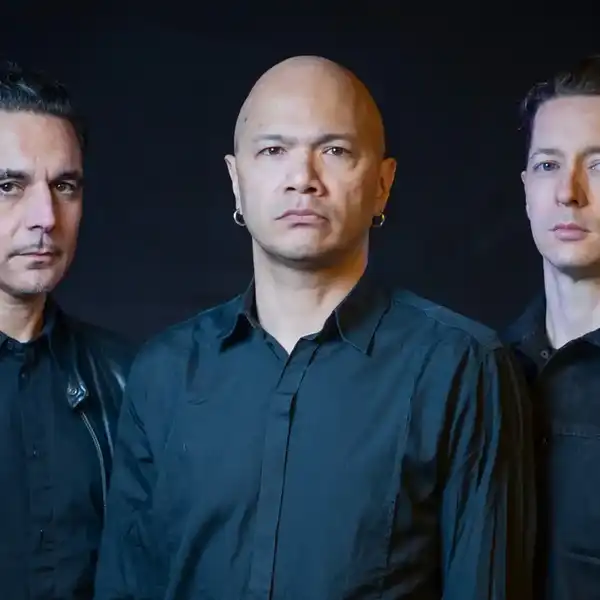Nostalgia, Jazz and the Internet
A recent sight in a Montreal hotel lobby induced fond reflections upon an era of precarious internet access in Caribbean countries.

By Bill King
Recently, we were just heading to our room from a jazz breakfast in Montreal when I noticed a couple in the main lobby fixated on a computer. That visual hit me like a mainline shot of melancholy.
Decades of traveling and touring – the many concerts, concert settings, countries, festivals – the difficulties surrounding communication have all been mostly solved for us, yet there was something endearing and stressful about that ‘wait for your turn’ in either a sanctioned Internet office or at a lone computer designated for hotel guests at a fee.
It’s 1998 and I’m working aboard the Norwegian cruise ship, The Sundream, scouring the Caribbean. I’m told there s phone and Internet access aboard. In truth, only officers and select crew members were afforded a moment to place a call or send an email home. Passengers and remaining crew had to dock in one of the scheduled island layovers and walk the streets nearest the landing to find an Internet café. We were doomed to failure until we hit Playa del Carmen in Mexico. The delightful tourist enclave was a must destination for young Americans and a playground for the single rich.
Internet? Five minutes, fifteen dollars. The local Internet café was set up to resemble turn of the century phonebooths or stalls - each with a square Apple computer and well-worn keyboard. In fact, most of the alphabet had been wiped from the instrument, yet, when sent, emails did arrive on the other end. A few short minutes, one could gloriously communicate to a loved one or friend in the upper hemisphere.
It’s 2002 and the Casaurina Hotel in Barbados. The once environmental haven recognized the world over for its dense protected tropical gardens and quaint setting near the beach, and for me a secluded Internet alcove became my daily sanctuary: quaint, affordable and one of the rare working systems in the early years of the new millennium.
Late morning after all the tourists depart, the room was mostly empty. One could write and send by the sound of chattering birds and the uprush of swashing waves. In fact, a curious bird would occasionally glide through open space and land near the keyboard as if a messenger – bend the neck, strain an eyeball – then flitter away. You could write beautiful prose to a client with the ocean and wildlife as a natural backdrop.
Let’s go back even farther. We were members of a journalist caravan in Jamaica and bused from one festival site to another. Far back of the bus, a Canadian writer is scribbling with pen and pad. The man would say this daily, “I’ve got to get back to the hotel and file today’s copy.” I remember a tourism representative grumble – “that fax paper cost a fortune and its six dollars a minute to place a call.” When I found out which publication, it turned out to be monthly and, in this case, someone looking for media attention.
It’s Cuba 2006 and nowhere near the speed and access we up north had grown accustomed to, and the only Internet provider is in the lobby of the Hotel Inglaterra; a sumptuous relic of Cuba’s golden past and a taxi ride across town. In a side room crammed with hopefuls; a few tourists - most others, locals - and a half dozen terminals all occupied. My partner and I wait. Five dollars for ten minutes - the room is sweltering hot, and both tourist and locals are unwilling to step away from this seductive implement of personal expression and freedom and indirect line to the world off-island. It was heart-wrenching to witness.
As time passes, the higher the anticipation: Words could be transmitted yet sending photos or video - a decade in the future. Once mailed; there was a sense of accomplishment and pleasure. Success was measured in the number of emails sent and answered, and the number of minutes sustained online. Everyone was polite yet mindful of the power-game being played.
Through the early Internet years, most fine hotels offered some form of dial-up access. There were line-ups, apprehension, tension, patience, and mad passion circulating these gatherings. There were long conversations and wait times - the “pissed off” – undisclosed fees – yet we patiently sat or stood in wonderment.
It’s been a few short years since Wi-Fi has become the norm. Even the decades covering Festival International de Jazz de Montreal has been a growth thing. Thirty years back it was a notepad and pocket camera. A decade back, the press gallery was elbow room only. This was a collection of the finest jazz journalists from around the world competing for precious time at one of the four installed computers. The surrounding couches were conversation central: those computers – a direct link to an editor or radio personality. The room was electric. Stevie Wonder one moment, Jeff Beck the next. Photos, notes, interactions, opinions – all being rushed to meet a specific deadline.
As I sit here writing, I can close my eyes and wear a long smile and moment of satisfaction knowing the past will always shine in this heart and anyone who has traveled the worldways will understand what I mean. The difficulties, the foreplay, the tussles with hotel guests and understanding the extent humans will go to, to share something personal with another. Say what? Time to file my copy?

















